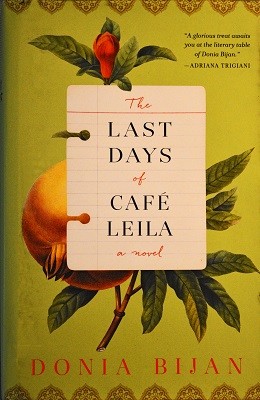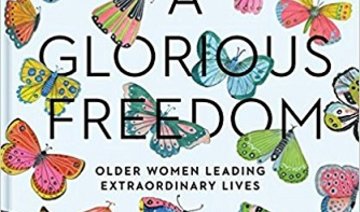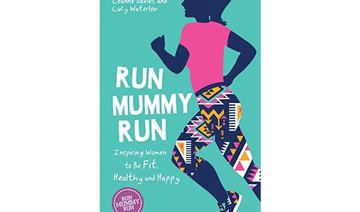Donia Bijan’s debut novel, “Last Days of Café Leila,” is the story of a woman attempting to find herself by rediscovering her family history and her roots: Her native Iran, her parent’s home, and her family’s beloved Café Leila.
Bijan herself left Iran in 1978 and ran a restaurant in Palo Alto, California, for 10 years, so there are clearly some autobiographical touches in the novel.
Run by three-generations of the Yadegar family, Café Leila has stood throughout Iran’s political turmoil and its effects on the country and its people. It is a powerful novel about family, strength, and resilience that sweeps the reader into Tehran and into the lives of the Yadegars from the early 1930s to the present day.
Behzod (Zod) Yadegar, the café’s second-generation owner, is in Tehran waiting for the postman to deliver a letter from his daughter, Noor. But sometimes letters from America can take two or three weeks to arrive.
Meanwhile, Noor, a nurse in San Francisco, has left her husband of 16 years, due to his infidelity, and moved into an apartment with her teenage daughter. Eventually, unable to pull herself out of the hole she has fallen into, Noor writes to her father and asks her if she can come back home.
This is when the story moves to Tehran and Café Leila.
“In a cul-de-sac at the end of Nasrin Street, quiet except at the hour when the kindergartners at Firouzeh Elementary were set free, sat a faded yellow brick building detached from its neighbors. Here, beneath a recessed sign, was Café Leila, its entrance framed in a low-hanging wisteria in full bloom.”
Within the confines of Café Leila, its garden and the now-obsolete Hotel Leila are Zod; 85-year-old Naneh Goli — Zod’s old nanny; waiters Hedayat and Aladdin who “still wore the same faded dark blue jackets with gold-fringed epaulettes, making them look like retired generals;” cousin Soli, who joined the staff after the war; and Karim, a young orphan apprentice who does odd jobs around the complex when not in school. With the exception of Soli and Karim, these are all the people Noor left behind nearly 30 years ago.
Bijan sensitively contrasts Noor’s San Francisco and Zod’s Tehran. In America, there is cautious comfort, a beauty Noor recognizes, but from which she feels disconnected. In Tehran there is a familiarity, a certain sense of calm, despite the troubles and fear of political edicts.
Bijan also contrasts the emotions of mother and daughter. Lily, born and raised in America, is furious about their move. She has never visited Iran and does not speak the language. But Noor realizes her life in San Francisco had left her feeling empty, and finally feels a sense of belonging. “The world changed around Café Leila, but the life that had gone on there since the 1930s continued,” Bijan writes. The café is the glue that holds three generations together.
In every corner of the house, restaurant and garden are bits and pieces of Noor’s life, as well as the lives of her brother Mehrdad, her parents and her Russian expat grandparents who first opened the café. Noor embraces that past as the Café does — a history spanning generations. The small orchard of pomegranate, almond and mulberry planted by Noor’s grandfather Yanik, for instance, “Year after year they blossomed, filling the air with their sweet smell, regardless of political turmoil or the events on the street.” Through Yanik and Nina came a love for Iran and for Persian food that lives on through Zod and Noor.
Bijan’s story is a refreshing take on the immigrant experience — one that is filled with the discovery of culture and of delicious and inventive cuisine.
There is trouble for Noor and Lily in Tehran, in the form of restrictive laws and an ailing, elderly father, but somehow the two women manage to find themselves, or, in Lily’s case, another version of herself she was unaware existed.
“Last Days of Café Leila” is about cherishing the past and reclaiming spaces in both the physical and mental realms. It is about understanding oneself through one’s family and traditions. It is a journey that keeps Noor teetering on a line between her two roles of daughter to a sick father and mother to a defiant teenager.
Bijan writes beautifully of a homecoming, not only in terms of familial ties, but also the sensual experience: the trees, the sounds, the sights, and smells.
Café Leila is not just Noor’s childhood home, it is a place of refuge, healing, and a place of acceptance no matter status or creed.
Bijan leads her readers through a spectrum of emotions with an incredibly relatable story, especially for people who have had to leave their homes for whatever reason. Bijan, through Noor, sums up the story simply and powerfully: “(She) couldn’t do anything to change the conditions, she couldn’t deny her awareness and she couldn’t stand in the way of death or love. The only thing to do was to keep moving, to do something, to show courage, to give everything she was capable of giving.”


Book Review: The story of a woman on a quest to find herself
Book Review: The story of a woman on a quest to find herself

What We Are Reading Today: ‘Geology’ by David Bainbridge

The geological processes that underlie all life on Earth can seem intimidatingly vast, ancient, and sometimes even alien.
Our planet’s dynamics have fascinated humans for millennia, yet only recently have we developed a clear picture of how they work.
This book presents the discoveries and critical scientific advances that inform our understanding of Earth’s origins and the forces driving geological change.
Each chapter tells a key piece of the story, focusing on a major aspect of geology that shapes how we experience our world.
© 2026 SAUDI RESEARCH & PUBLISHING COMPANY, All Rights Reserved And subject to Terms of Use Agreement.














